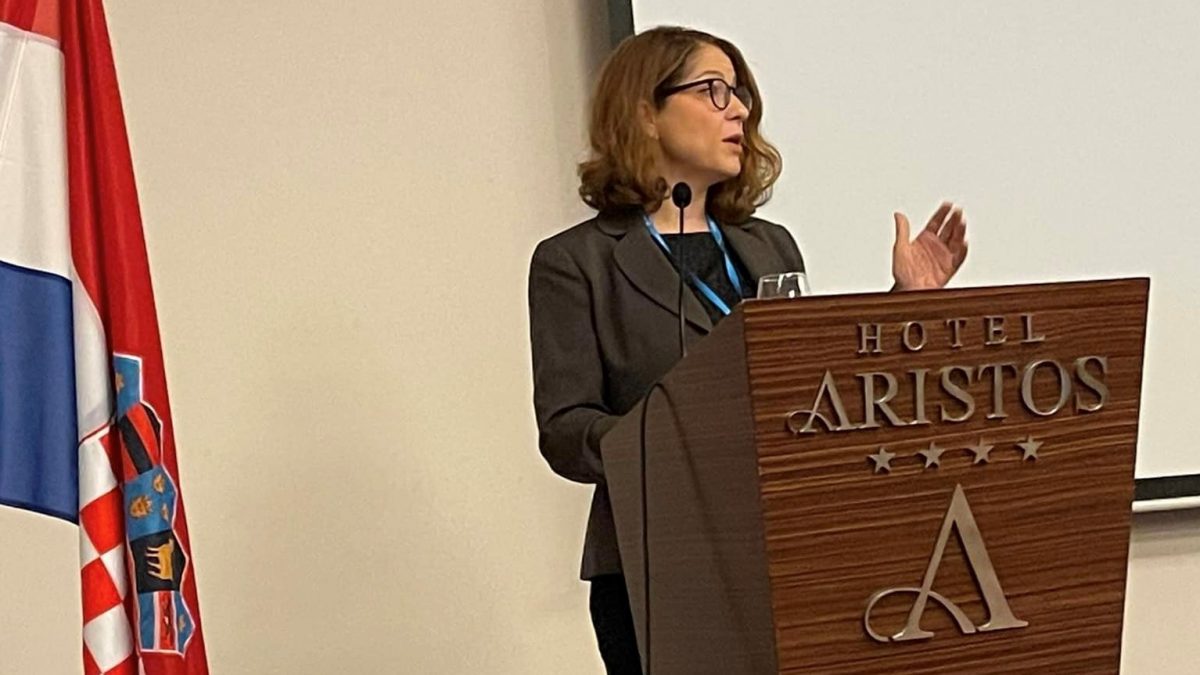Ombudswoman Tena Šimonović Einwalter participated in a professional gathering for providers of social services for older persons, organized by the Association for Information, Promotion and Development of Social Services for Older Persons “starKA” on 14 November 2022.
The aim of the event was to better inform service providers about the rights of older persons and to encourage intersectoral cooperation, all with the goal of improving the quality of care and protection for older persons.
In her lecture on the topic The Rights of Older Persons, Ombudswoman Šimonović Einwalter presented to participants the various factors affecting the human rights of older persons in long-term care, and the specific rights at stake.
Regarding the right to life, she emphasized the obligation of the state and residential care homes for older and dependent persons to ensure a safe environment for users, including under pandemic conditions such as during the COVID-19 outbreak. The lack of dental services, rehabilitation, and the inappropriate use of medication can jeopardize the right to health, while violence may lead to violations of the right to freedom from torture, and degrading or inhuman treatment.
Threats to the right to dignity or the right to privacy and family life may arise, for example, when a deceased user remains in a shared room with others, when users are transported without clothing, when bedridden users are cared for or incontinence pads are changed in the presence of others without curtains or partitions, or when users who are not incontinent are forced to use incontinence products.
Insufficiently heated rooms, unclean or dirty facilities with poor ventilation and overcrowded conditions, as well as inadequate quality of daily meals, may compromise the right to an adequate standard of living.
Freedom of movement may also be affected by whether users are administered sedatives to control certain behaviours, or whether their doors are locked from the outside. When older persons are not given the opportunity to contribute to their care planning, this can impact their right to autonomy.
The right to an effective legal remedy implies that users are informed about complaint procedures – to whom and how to submit a complaint – and that effective procedures are in place for addressing these complaints.
The Ombudswoman also highlighted problematic situations such as when a third party signs a residential care agreement with a care home on behalf of the user, or when the home charges additional fees for certain services, especially if this is not clearly and transparently communicated. She noted that the COVID-19 epidemic further exposed longstanding issues – such as insufficient capacity in care homes, lengthy and non-transparent waiting lists for placement, and the lack of measures to reconcile professional and family life for relatives caring for older family members.
The Association “starKA” organized this professional gathering in cooperation with and under the auspices of the Ministry of Labour, Pension System, Family and Social Policy. Other speakers in the programme included Minister Marin Piletić, president of the Association “starKA” Sabina A. Latin, Director of the Institute for Social Work Tatjana Katkić Stanić, who also moderated the event, Head of the Department for Development and Improvement of Social Services Anica Ježić, Head of the Service for Social Planning, Service Network Development and Contracting within the Department, Ivančica Mamek Jagić, Director of the Institute for Emergency Medicine Maja Grba-Bujević, Head of the Independent Sector for Administrative and Inspection Supervision Sunčica Lončar, as well as representatives of Krapina-Zagorje, Međimurje and Karlovac counties, and the City of Zagreb.


